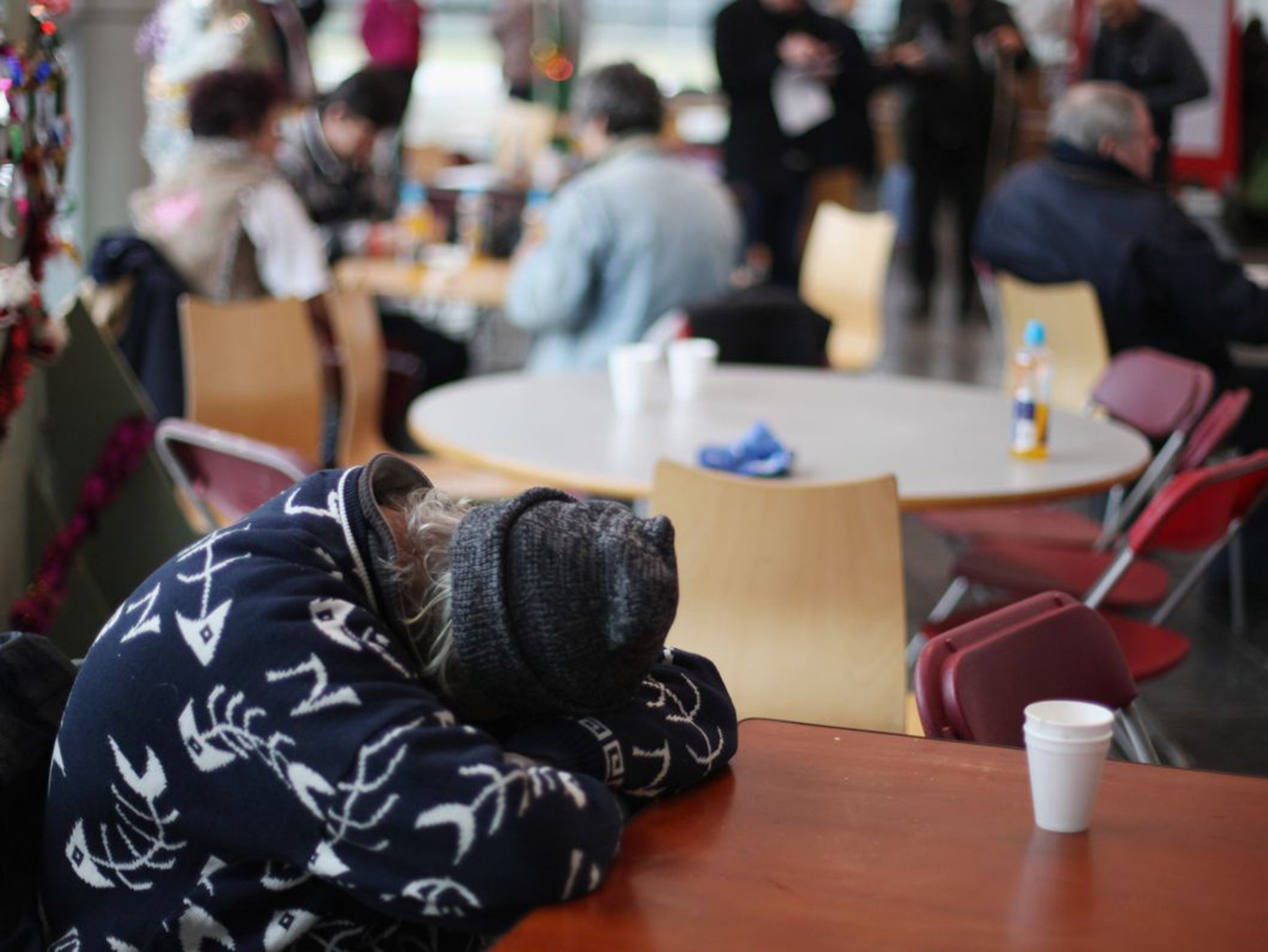Homeless people with disabilities await legal ruling on housing applications
Supreme Court to clarify role of local authorities in caring for the most vulnerable on their streets

Your support helps us to tell the story
From reproductive rights to climate change to Big Tech, The Independent is on the ground when the story is developing. Whether it's investigating the financials of Elon Musk's pro-Trump PAC or producing our latest documentary, 'The A Word', which shines a light on the American women fighting for reproductive rights, we know how important it is to parse out the facts from the messaging.
At such a critical moment in US history, we need reporters on the ground. Your donation allows us to keep sending journalists to speak to both sides of the story.
The Independent is trusted by Americans across the entire political spectrum. And unlike many other quality news outlets, we choose not to lock Americans out of our reporting and analysis with paywalls. We believe quality journalism should be available to everyone, paid for by those who can afford it.
Your support makes all the difference.Homeless disabled people are increasingly being turned away by cash-strapped councils as officials find reasons to avoid treating them as a priority, according to lawyers mounting a potentially landmark legal challenge.
This week the Supreme Court will consider decisions by local authorities to deny housing to a man with learning difficulties and post-traumatic stress disorder (PTSD), another with mental and physical health problems and a drug addict who has been homeless since 2005.
One activist condemned the current system, saying it allowed councils to abandon people to a life on the streets, where the average life expectancy is just 47.
Housing applicants are considered to have a priority need if they are vulnerable, for example because of old age, a mental health problem or a physical disability. Local authorities test vulnerability by comparing applicants with "an ordinary homeless person" and considering whether they would be less able to fend for themselves.
The three-day Supreme Court hearing, which begins tomorrow, will examine the way this is done and any change could have nationwide implications.
In one case, Southwark Council in south London decided Sifatullah Hotak was not a priority despite his PTSD, learning difficulties and symptoms of depression. They agreed he was vulnerable but said his brother Ezatullah Hotak, also homeless, was able to look after him. Mr Hotak, an Afghan national in the UK legally, relies on his brother to wash and dress him and make sure he goes to medical appointments. Both men live in a hostel but the council decided Ezatullah would be able to cope even if they were on the streets.
In 2011, the council said: "On his own and street homeless, Mr Hotak may also be at risk of harm insofar as it may have an impact on his health. However, we are satisfied that his brother is capable of providing continued housing and support if they were street homeless together."
Mr Hotak's solicitor Pat Wilkins said her client's situation was part of an increasing trend.
She said: "It's getting more difficult for [vulnerable] people to get housed. I think there is a general shortage of housing and therefore local authorities have had to become much tougher about their decisions on how that housing is allocated.
"The most vulnerable people tend to be those who [do not] have the loudest voice, who aren't able to make the case that others can."
In a second Southwark case, Patrick Kanu was refused housing despite having a mental health disorder and a number of physical problems. In 2012, the council argued his conditions could be controlled by medication and his wife and grown-up son could help him.
Mr Kanu's solicitor, Stuart Hearne of Cambridge House Law Centre, echoed Ms Wilkins's comments. "There has become a noticeable increase in local authorities refusing to accept people with significant mental health problems [as a] priority need," he said.
In a third case, Solihull council decided that Craig Johnson, who has a history of drug use and has been convicted of 50 offences, mainly petty theft, was not vulnerable enough to receive priority housing even though he has been homeless since 2005.
Jon Sparkes, of homelessness charity Crisis, said the current system was "unfair and wrong" and a "long-standing injustice", arguing all homeless people were vulnerable.
"The resource level of the local authority shouldn't be material in the decision about how vulnerable someone is," he said. "While I can see some logic in there being priority and lower priority, having a system which enables a local authority to turn someone away to a [place] where their life expectancy is 30 years lower than the general population, I can't see how that person is not a priority."
Southwark's housing spokesman, Richard Livingstone, said in both of its cases the Court of Appeal had found that the authority acted correctly.
"If a different view is taken by the Supreme Court, then this will be taken into account," he said. "This is a much wider issue than decisions made by individual councils and we welcome the focus Crisis and Shelter are bringing to the national legislation and the questions raised."
Solihull council declined to comment until after the hearing.
A Department for Communities and Local Government spokesman said: "Housing authorities must ensure that suitable accommodation is available for people who have priority need."
Join our commenting forum
Join thought-provoking conversations, follow other Independent readers and see their replies
Comments